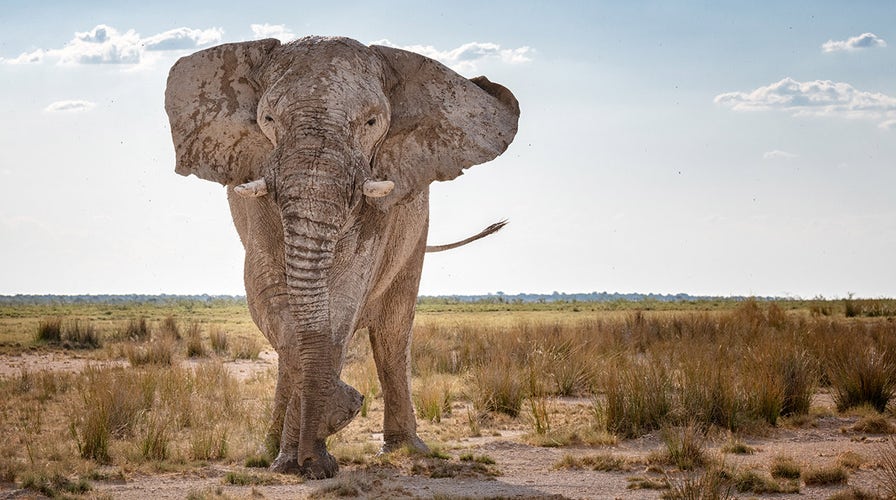Fox News Flash top headlines for Nov. 8
Fox News Flash top headlines for Nov. 8 are here. Check out what's clicking on Foxnews.com
A 59-year-old Austrian tourist has been killed by an elephant while on a camping trip in Namibia, according to the Ministry of Environment and Tourism Namibia.
The unnamed man was allegedly killed in the Huab River, Kunene region-- located in western Namibia-- where a group of tourists was camping. Police said they determined it was not a designated camping site.
It was originally reported that the deceased was Australian.
DROUGHT RAVAGES SOUTHERN AFRICA, OFFICIALS SAY 45 MILLION AT RISK OF HUNGER
Police are continuing to investigate the tragedy and are attempting to establish if any of the tourists were led by a guide.

Huge Elephant stomping and charging through the Savannah, Namibia. Converted from RAW.
"This is a very unfortunate incident and highly regrettable," the statement said. "It has thus far been established that the area in which the group of tourists were camping is not a designated camping site."
The tourism ministry said they want tourists to always be cautious when exploring the area while adhering to the rules and regulations put in place for their safety.
CONGO WARLORD BOSCO NTAGANDO SENTENCED TO 30 YEARS FOR ATROCITIES
"The Ministry wishes to reiterate our call to our very welcome tourists to always be cautious and adhere to the rules and regulations put in place for their safety," the statement added. "We wish to express our sincere condolences to the bereaved family and friends of the deceased."
Namibia is one of the few countries to address conservation in its constitution, according to the worldwildlife.org. It's a fairly new country having achieved its independence in 1990.
CLICK HERE TO GET THE FOX NEWS APP
"Namibia was the first African country to incorporate protection of the environment into its constitution, and the government gave people living in communal areas the opportunity to manage their natural resources through the creation of communal conservancies," the outlet said. "These conservancies – as well as governments, nonprofit organizations and other entities – have restored populations of lions, cheetahs, black rhinos, zebras and other native wildlife to the world’s richest dry land. Through initiatives, such as ecotourism, restoration has generated sustainable income for their communities."

